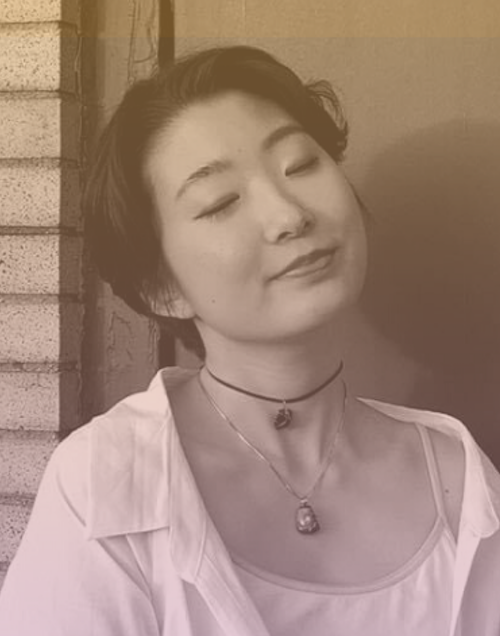Asian American Community Fellowship Reflection: Seri Lee

evalUATION OF ASIAN AMERICAN SUMMER COMMUNITY FELLOWSHIP
By Seri Lee
October 2018
Our thunderous chants reverberated around the halls of the U.S. Senate office building. “JUSTICE IS,” we cried, “NOT KAVANAUGH.” A swarm of Capital Police cops blocked our path and threatened to arrest us if we didn’t stop chanting. Fists up, we left the building.
That day, a hundred women of color from Alaska to New York, Minnesota to Arizona, had come together in Washington, D.C., to take collective direct action and demand our senators to #StopKavanaugh. As an intern at National Asian Pacific American Women’s Forum (NAPAWF) under the supervision of National Field and Campaigns Manager Kristina Tendilla, I helped bring 10 NAPAWF Chicago leaders and community members to join our contingent of 60 AAPI women for this historical Reproductive Justice Day of Action.
At NAPAWF, I mainly worked alongside the Chicago Organizer to grow our base of powerful AAPI women—canvassing on the streets of Argyle, Devon, and Chinatown to invite community members into our work and build their capacity/leadership within the movement—as well as run multiple campaigns, both local and national in scope. From May to mid-July, I worked on NAPAWF’s national campaign to #EndTheLies told by crisis pregnancy centers (also known as fake clinics), which intimidate, manipulate, and shame pregnant folks from seeking an abortion, as well as target the vulnerable members of our communities, especially youth, immigrants, and working-class people. We planned a storytelling open mic night that educated community members about these fake clinics and, more importantly, provided a space for us to share our experiences. We laughed, cried, raged, and reflected together, and in July, we took action. I helped organize and lead 40 NAPAWF Chicago members and allies to take over the CTA Red Line and rally in front of a fake clinic on Michigan Avenue. In September, we also hosted a viewing party to watch some interviews we had conducted with Southeast Asian women and non-binary folks from across the country, highlighting and reflecting on the immigration and working experiences of Southeast Asian women as well as income inequality within AAPI communities.
In my capacity as an intern at Invisible 2 Invincible: Asian Pacific Islander Pride of Chicago (i2i), I primarily did outreach and conducted four interviews for the Queer Asian American Archive (QAAA), an oral history of LGBTQIA+ Asian Pacific Islanders in Chicagoland and the Midwest. The purpose of the archive is to gather our stories so that community members and scholars can access the rich and vibrant histories of our people. During the interview, I asked the participant to talk through and reflect on their identity and experiences as a queer/trans API person. In addition, I had them draw a map of where they live and the LGBTQIA+ and/or Asian American spaces that are important to them, including bars/clubs, community centers, beauty salons, grocery stores, restaurants, etc. Following the interview, I prepared paper materials for the archive, including a biography of the participant, keywords, and a time code. At the end of my internship, I organized an event to celebrate QAAA’s 50+ interviews milestone that we had set as a goal for the summer. I helped create a space for dialogue and reflection about folks’ experiences with participating in the project, raise visibility of the archive and make it a known resource, as well as recruit a significant number of people. Being in community with other queer/trans APIs felt good. It made me feel whole, and I’m immensely grateful that I could be in a space in which I didn’t have to fragment myself. I could be API, queer, non-binary, working-class, second-generation, in the Korean diaspora all at once, and there were others who felt similarly because of our shared lived experiences.
One of the challenges I encountered while interning at both organizations was making asks to people I met on the streets or folks I didn’t have a prior relationship with. Although organizing and running campaigns on campus had forced me to become more extroverted, I was still introverted and felt awkward whenever I made those asks, especially commitments. I had to push myself to become more assertive so that I could move people to take action and take on more capacity, whether that was through money or time or labor. Constantly doing outreach, talking to community members, and building relationships, both interpersonal and organizational, helped me build my own leadership and grow as an organizer and individual.
Organizing is hard work. Of course, I knew that, but at the same time, I hadn’t known that. A lot of folks, myself included, want to destroy oppressive power structures; to abolish violent state apparatuses, whether that be the police, ICE, borders, or the carceral system; and to end racism, imperialism, heteropatriarchy, ableism, queer and trans antagonism, etc. We’re well-versed in the language of destruction and termination. We know what we don’t want. But we don’t know what we do want. In my interviews with queer/trans API folks, I asked participants what their vision of liberation is. They struggled to answer the question. But organizing allows us to build, even as we destroy—to build community and to build collective power so that we have a liberated people and place we can return to once we burn everything down. That’s why I’ve chosen to stay at NAPAWF and work part-time as a Chicago Organizer. I’m deeply committed to working across different communities and building our collective power because I love this city and the people in it.
